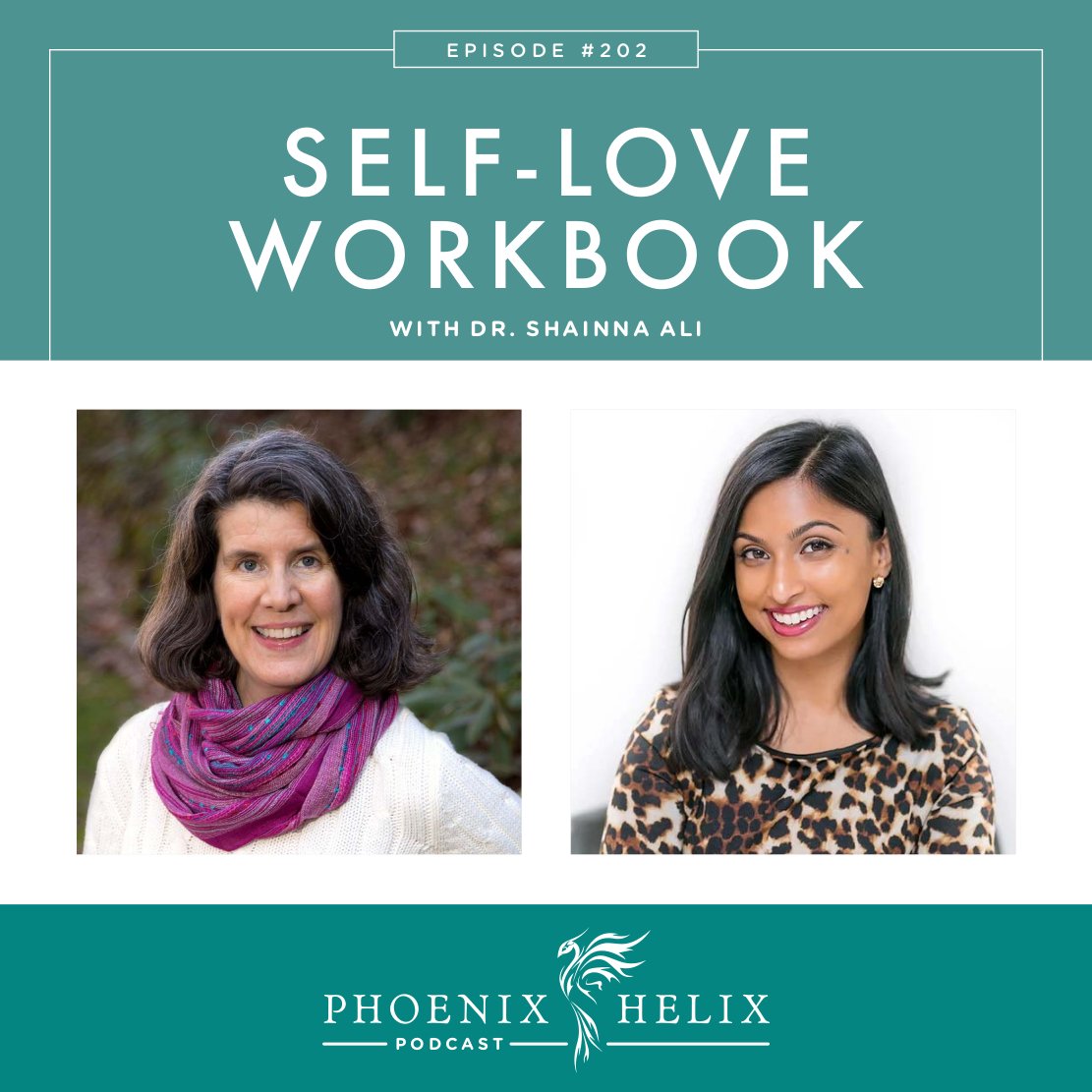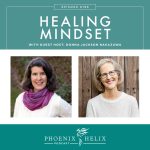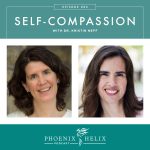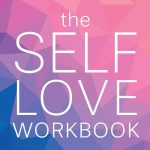Finding Self-Love with Autoimmune Disease
When you have autoimmune disease, it’s common to feel disconnected from your body and even betrayed by your body. Yet we live in our bodies, so this creates a complicated relationship with ourselves. Instead of self-love, we might end up feeling self-hate. How can we change that? How does self-love, or the lack of self-love, impact our wellbeing, both mentally and physically? My guest today is Dr. Shainna Ali, a mental health counselor, educator, and advocate. She is also the author of the Self-Love Workbook series. They are practical guides with concrete action steps. They go beyond a misty view of self-love and teach skills we can apply in our daily lives.
Listen to the Show
- Subscribe to my podcast through your favorite podcast app: iTunes, Stitcher, Google, TuneIn, Spotify, Amazon, etc.
- You can also listen to the episode right here through the player below, and if you subscribe to my newsletter you’ll get notified of future episodes.
Podcast: Play in new window | Download
Show Notes
- Intro (0:00)
- Meet Dr. Shainna Ali
- Dr. Shainna Ali is a mental health counselor, educator, and advocate. She is also the author of the Self-Love Workbook series.
- Listen to my prior interview with Dr. Shainna: Ep. 167 – Why New Year’s Resolutions Fail.
- Thank You to Our Podcast Sponsor – Functional Nutrition Alliance (3:32)
- Full Body Systems is their internationally acclaimed, 10-month online functional nutrition immersion training program.
- It’s designed by world-renowned educator, Andrea Nakayama. Many of you know her as one of my most popular podcast guests. Her unique way of working with patients often leads to results where other practitioners hit dead ends. This program teaches you to do the same.
- If you’re already trained as a health coach, nutritionist, or medical practitioner and want to more effectively help your clients break through healing plateaus, this class is for you!
- And if you’re an aspiring practitioner just getting started, this might be the only training you need.
- You’ll gain detailed knowledge of all the systems in the body, how they interact, how problems develop, and how to personalize diet and lifestyle recommendations for each unique client.
- Enrollment is currently open. To learn more, visit FxNutrition.com/Eileen.
- Defining Self-Love (4:53)
- Self-love begins with the self, so Dr. Shainna encourages everyone to develop their own definition.
- Her definition of self-love is the active practice of accepting, caring for, and encouraging oneself.
- 7 Segments of Self-Love (5:54)
- Self-awareness
- Self-exploration
- Self-care
- Self-esteem
- Self-kindness
- Self-respect
- Self-growth
- A Person-Centered Approach (6:40)
- This is a style of counseling where the therapist isn’t an authority figure. Instead, the goal is to help the client uncover their own inner wisdom.
- This is the style of therapy Dr. Shainna uses in her clinical practice, and it’s also the approach taken in The Self-Love Workbook. That’s why it’s a workbook rather than a textbook. Information is shared, but it’s filled with exercises to guide you to learn more about yourself. We cannot love ourselves if we don’t know ourselves.
- Self-Compassion (9:26)
- We talk about self-compassion a lot on this podcast, and some people equate it with self-love. Dr. Shainna believes there are similarities, but self-compassion doesn’t always include all of the segments of self-love. It’s most similar to the self-kindness segment and focuses on how we talk to ourselves, which is important. But The Self-Love Workbook also focuses on our behavior – how we treat ourselves – which is why self-care, self-respect, and self-growth are vital parts of self-love too. Dr. Shainna also intentionally uses the word “love” because most people don’t struggle to love others. They struggle to love themselves, and that’s important to acknowledge and overcome.
- Self-Love Myths & Misconceptions (11:05)
- Just like the definition of self-love varies from person to person, so might the beliefs we have about self-love. Here are some common misconceptions.
- That self-love is a feeling of entitlement. It’s not. It doesn’t mean you deserve everything in life. Instead, self-love is understanding your worth. Your aren’t more deserving than other people, but you are just as deserving as other people.
- That self-love is selfish. It’s not. Self-love is an investment in your own growth that benefits others in your life as well.
- That self-love is sinful or harmful. It’s not. If you were raised in a collectivist culture where you were encouraged to always put others’ needs before your own, self-love may feel “wrong” at first.
- That self-love is an excuse for avoiding hard things. It’s actually the opposite. The true work of self-love includes accountability.
- Overcoming Self-Hate (13:40)
- The medical community often uses war-like language to describe autoimmune disease: “Your body is attacking you.” Many people end up feeling betrayed and disconnected from their bodies, and it’s not uncommon for people to feel self-hate rather than self-love. How do we begin the self-love journey if this is the starting place?
- There is a power dynamic in a medical office when we are seeking expert advice. If we aren’t careful about the language given to us, we may start to internalize it. But we get to choose the language we use when speaking about our bodies and ourselves. In fact, if we nurture self-loving language at our core, it will become clear immediately when other people use language that doesn’t align with that.
- And if the opposite is true – if self-loathing language aligns with your inner voice, sit with that nonjudgmentally, and try to see where that voice comes from. Is it from your past? Did you have hatred toward yourself before your diagnosis that makes it easier to accept the perspective of a war-like relationship with your body now?
- For Eileen, a key to transforming these feelings was understanding that she is one with her body, so if she hated her body, she was hating herself, and that’s the opposite of a healing state. This doesn’t mean it’s easy to transform feelings, and all emotions have their place, but this shift in perspective was helpful.
- Another technique Eileen uses during autoimmune flares is to consciously considering everything her body is doing right that she takes for granted. This helps her see that the flare isn’t her entire experience.
- Resource: My Body Is NOT My Enemy.
- Other Obstacles to Self-Love (19:08)
- Early in The Self-Love Workbook, Dr. Shainna writes, “This workbook will likely be easy to read but harder to practice.”
- Most people will encounter obstacles during their self-love explorations. This isn’t a failure. It’s part of the process, and responding to those obstacles is a test for how far you’ve come in your self-love journey and can deepen your understanding and your self-love.
- Obstacle #1: External Influences. This includes the medical community we discussed earlier, but can also include family, coworkers, and friends. When conflict arises, that can test self-love.
- Obstacle #2: Comparison with others. Or comparison with your past self (prior to developing autoimmune disease). This obstacle may arise during an autoimmune flare.
- Obstacle #3: Cultural expectations and societal standards. When your core self doesn’t “fit” those expectations.
- Obstacle #4: Abuse and danger. In this situation you are in survival mode, and meeting your needs and attaining safety is the most important expression of self-love.
- Emotional Awareness & Self-Love (23:25)
- Society generally minimizes the importance of emotions with rules about keeping them “hush hush”. The result is a society that lacks the skills to recognize or regulate emotions. Emotions are a natural part of the human experience, but they’re often repressed until they come out in force, blown out of proportion.
- Emotional awareness is an important part of self-awareness. And self-awareness is a key part of self-love. So, the workbook has some wonderful exercises to build this awareness.
- A simple exercise you can try today: For the next 24 hours, pay attention to your emotions. Recognize them when they appear and give them a label – what emotion are you feeling? What triggered this emotion? And what behavior are you inclined to do in response to it? The more you do this, the more you’ll recognize patterns, and that gives you options. Instead of emotions being unconsciously triggered and leading to automatic responses, you can choose how to care for yourself when experiencing challenging emotions. You can choose self-love. You may also be able to interrupt some emotional triggers in advance.
- In addition to emotional awareness being an important aspect of self-love, it’s also important for autoimmune health. The mind-body connection is real, and sometimes emotions trigger autoimmune flares. As you gain emotional awareness, you learn ways to safely feel your emotions, letting them flow and letting them go. (Resource: Ep. 198 – Healing Mindset.)
- The internet has also become an inflammatory place, where many of us are constant triggered, and emotional overreaction is commonplace. Three years into the pandemic with a steady stream of horrifying world events, many of us find ourselves overwhelmed and feeling a combination of hypervigilance and exhaustion. Emotional awareness is a skill that can help us de-trigger ourselves, so that we become less reactive. It can also help us identify the things that push us into overwhelm, and in contrast, what things replenish us. When our resources are low, and it’s really hard to replenish, simply acknowledging that truth is an act of self-love too.
- Thank You To Our Podcast Sponsor – Luminance Skincare (30:25)
- Today I want to highlight their Travel Essentials Kit. Whether you’re traveling by road, plane, or train, this kit is for you! And if you’re staying home, this kit is also a great way to sample many of their most popular products. The kit contains 11 items, all sized between 1-2 ounces, meeting TSA rules for carry-on bags. Here’s what you get:
- Travel sizes of their bestselling facecare trio (delicate cleanser, rosewater toner, and deep hydration lotion).
- Travel sizes of their haircare set (clean shampoo and hair serum).
- Travel sizes of their most popular bodycare items (unscented body lotion, unscented lip balm, and 2 handmade bar soaps).
- And then 3 other travel essentials: hand sanitizer, lavender scented pillow spray, and my favorite sunscreen (made with just 3 ingredients).
- Whereas conventional skincare products are full of chemicals that can hurt our bodies, Luminance is made from ingredients that nourish. It’s the cleanest skincare anywhere. Their products are natural, organic, wildcrafted, non-GMO, and gluten-free (and they’re even made in a dedicated gluten-free facility). They’re also handmade in small batches within the United States.
- They have a complete face and body care line, including cleansers, toners, moisturizers, masks, acne serum, sunscreen, haircare, and more.
- Place an order here, and use the code HELIX for 10% off your first order.
- Today I want to highlight their Travel Essentials Kit. Whether you’re traveling by road, plane, or train, this kit is for you! And if you’re staying home, this kit is also a great way to sample many of their most popular products. The kit contains 11 items, all sized between 1-2 ounces, meeting TSA rules for carry-on bags. Here’s what you get:
- Identity & Self-Love (32:18)
- Learning about who we are is an act of self-love, which is why self-exploration is an important part of the work.
- When it comes to exploring identity, we all have different layers based on our background, experiences, and the roles we play.
- With autoimmune disease, we can sometimes fall into the trap of over-identifying with our illness where that becomes our primary identity.
- We all have a core self underneath all of our identity layers – and it’s independent of our diagnosis or any labels that apply in our lives. Uncovering and loving your core self is self-love in its purest form.
- Yet exploring all these layers of identity can also be helpful in understanding ourselves better and loving ourselves more completely. Each identity is connected to different emotional triggers and also has different needs. Knowing what they are helps us honor all that we are.
- This self-exploration also builds resilience to change, because we won’t feel like we’re losing ourselves each time a layer of identity shifts.
- Self-Love Isn’t a Luxury (37:45)
- Self-love is a foundation that can support us in times of overwhelm. It’s not a luxury for when life calms down. It’s a toolbox that helps us feel calmer, more grounded, and more empowered when facing life’s stressors.
- We would never want to live a life without loving other people. Why do we think it’s optional to love ourselves?
- When we aren’t self-loving, everyone in our sphere suffers because they feel the reverberations.
- Keeping vs. Breaking Boundaries with Ourselves (38:55)
- When we think of boundaries, we often think of setting them with other people, and if you struggle with this, I have a podcast to help: Ep. 118 – Boundaries and the Art of Saying No.
- But boundaries are also important in our relationship with ourselves, and that’s directly connected to our ability to set boundaries with others. This is the self-respect part of self-love.
- For example, if someone is speaking to you in a disrespectful way and you want to tell them that’s unacceptable, first reflect on your own self-talk. Do you speak to yourself in the way you want others to speak to you? Respecting the boundary within yourself makes it easier to set this boundary with others. It lays a strong foundation. (We can also look at this from the autoimmune perspective. We want our bodies to stop the self-attack, but are we willing to do the same in our minds?)
- Self-care is another part of self-love, and it’s one that’s essential for people with chronic illness. The boundaries we keep or break with ourselves can either support this goal or interfere with it. Building this skill directly benefits autoimmune health.
- It’s not about perfection. If we break a boundary with ourselves, we can draw on the other tools of self-love:
- Self-kindness as we forgive ourselves rather than judge ourselves too harshly.
- Self-awareness as we explore the circumstances around our choices.
- And self-growth as we honor our boundaries more often in the future.
- Self-Love Date (45:12)
- We often prioritize quality time with other people, but never consider taking quality time to simply be with ourselves.
- If you were to go on a date with yourself, what would that look like? Thinking about it, planning it, and then actually doing it – all of these steps are expressions of self-love.
- And if a self-love date feels too big to tackle right now, you can do miniature versions. Take an hour (or even 5 minutes for yourself) and plan it in a loving way.
- Self-Love & Your Ability to Give to the World (46:50)
- The Self-Love Workbook ends with a section on giving, growing, and paying it forward.
- Some people are drawn to giving – that comes easily whereas giving to themselves is difficult. The exercises in this section may serve as a starting point for fostering self-love.
- Other people may feel like they have nothing to give – they are too exhausted physically, mentally, and emotionally. If this is true for you, the first step is to give to yourself and fill your own cup. You need to replenish before you can give to others.
- We are also living in a time of enormous world problems, and it’s common to feel powerless to help. First, consider what giving means to you. Do you have a concept of giving that was influenced by someone else, and it’s not the way you want to give? What way can you give that is loving to yourself as well as others? Where can you find joy in giving? It can also be helpful to consider small ways to give. It doesn’t have to be a huge commitment to make a difference.
- Finally, self-love and our ability to give to others is part of a circle. We can’t give from an empty cup, but as we nourish ourselves, we have more to give others. And giving, in turn, feels good and enhances self-love.
- Books in the Self-Love Workbook Series (53:11)
- The original Self-Love Workbook for adults
- The Self-Love Workbook for Teens.
- Luna Finds Love Everywhere (a picture book for children).
- The Self-Love Planner (releasing in September 2022).
- Designing Healthy Boundaries (releasing in December 2022).
- Outro (54:12)
- You an keep up with Dr. Shainna and her work through her website or Instagram. She has 5 books in her Self-Love Workbook Series. She also offers consulting and educational events surrounding the topic of self-love.
- Eileen (your podcast host) is the author of multiple books, written to help people thrive with autoimmune disease. Learn more on the Books Page.
- If you like this podcast, follow or subscribe through your favorite podcast app. You can also subscribe to Eileen’s biweekly newsletter.
- Check out the entire archive of podcast episodes.
You May Also Be Interested In
Spreading the Word
If you like the podcast, please leave a positive review in iTunes. It would mean the world to me, and also helps others find the podcast. Here are some quick instructions using your iPhone:
- If you are already subscribed to my podcast: (1) Click the purple podcast icon. (2) At the bottom of the screen, click Library. (3) At the top of the screen, click Shows. (4) Click the Phoenix Helix podcast image. (5) Scroll down the page, and you’ll see Ratings and Reviews. Scroll down a little bit more and click on Write a Review. This will bring up the review screen. Tap 5 stars (if you love the podcast), and then click in the title box, and it will bring up the keyboard. Enter a title and short review. (6) Click Send in the upper right corner. (7) Thank you! Positive reviews give the podcast a higher search ranking in iTunes, helping people find it and letting them know it’s a quality podcast and worth their time to listen.
- If you haven’t subscribed to my podcast: (1) Click the purple podcast icon. (2) In the lower right corner, click the magnifying class. (3) Type Phoenix Helix in the search box. (4) Click the podcast cover in the Show list. (5) If you’d like to subscribe, click the + sign at the top of the screen. (6) To write a review, scroll down the page, and you’ll see Ratings and Reviews. Scroll down a little bit more and click on Write a Review. This will bring up the review screen. Tap 5 stars (if you love the podcast), and then click in the title box, and it will bring up the keyboard. Enter a title and short review. (7) Click Send in the upper right corner. (8) Thank you! Positive reviews give the podcast a higher search ranking in iTunes, helping people find it and letting them know it’s a quality podcast and worth their time to listen.








